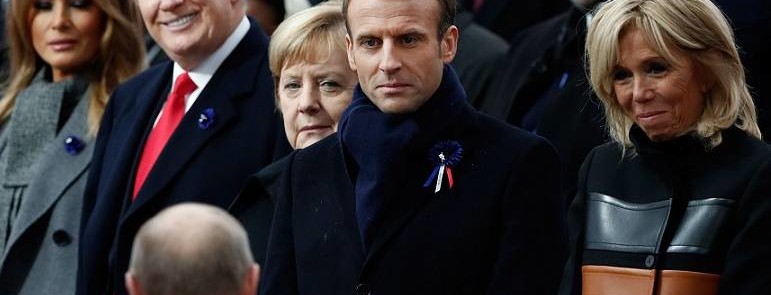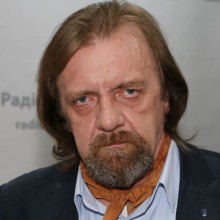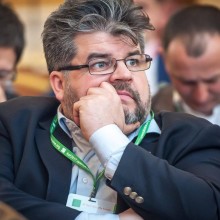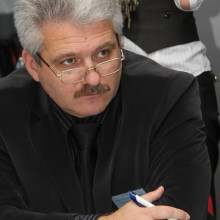In From Paris with Love, a tough guy and CIA agent brilliantly played by John Travolta, arrives to the French capital and along with his partner, quickly takes care of the terrorists and their accomplices there. Notably, he does not bother with a complex analytical study of the enemy, employing instead the tried-and-true «forcible methods» that guarantee the result.
Nowadays, many in the world would draw the analogy with the modern American diplomacy. However, in reality, there is more to it than meets the eye, and often the seemingly straightforward actions are merely a veneer for the clever combinations, whose effectiveness has been lately acknowledged even by the customary critics of the US foreign policy.
On November 10-11, Paris held the commemoration of the centennial anniversary of the end of the World War I. As part of the program, the leaders of the invited states, among other things, took part in an official dinner at the Elysee Palace, where, as media pointed out, the US and Russia presidents had a short conversation.
Naturally, the world media continues to comment on the commemoration itself and the events around it, but we in Ukraine should understand what is really happening behind the scenes of the modern American-Russian relations today.
There is little doubt that this year will not produce the reduction of tensions in international relations, as the Novichok’s poisonous spirit will likely determine the nature and content of the relationship between the West and Putin's Russia for years to come.
At the same time, the relationship between Washington and Beijing has also considerably worsened this year, forcing the United States to seek diplomatic ways to weaken its Chinese opponent. It's no accident that US Secretary of State Mike Pompeo, in a recent interview has identified China «as the most important long-term strategic challenge for the United States of America, and that’s across multiple fronts.»
There are reasons to believe that just like in the 1970s, today, the United States would like to weaken ties between Eurasian states. But unlike in president Nixon's time who in 1972 staked on communist China, now through both pressure and promises, Washington is apparently trying to pull Russia away from China, undoubtedly considering the former to be the weaker link. It seems that was precisely what the national security adviser to the US President John Bolton probed during his visit to Moscow on October 22. One also cannot rule out the possibility of an American diplomatic move in the true Henry Kissinger style, namely, making steps towards Moscow in the hope that they would push Beijing to an earnest search for understanding with the US.
However, it looks like the Russian Federation is not yet prepared to abandon the Celestial Empire in order to interact with the US that in the July 25, 2018 Crimean Declaration have reaffirmed their commitment to the fundamental norms and principles of international law and pointed to Russia's unworthy conduct as a great power that undermines its credibility in the global arena.
But it is the very US recognition of Crimea as Russian in at at least some form, that is of course, extremely important for the Kremlin today. And Washington’s reluctance to play the Russian games coupled with the barrage of US sanctions openly annoy Moscow. So, it’s not surprising that the public assessment of the Bolton’s visit to Moscow given by the press service of the Russian Foreign Ministry was that of an unsuccessful attempt to «drive a wedge between Russia and China».
On top of that, the anti-Western course repeatedly declared by Putin does not leave him much room for maneuvering. By now, the population and the security forces the Kremlin’s regime rests on have long been firmly infected with anti-Americanism of the most primal savage variety that is being nourished by Russian national propaganda, the current militarization orgy and the constantly rising defense spending to match.
Therefore, any compromise with the United States will be unequivocally seen in Russia as a surrender to the West, something this regime cannot afford. So, it seems that Moscow is now ready to turn a blind eye to China’s aggressive economic expansion in Central Asia and other Beijing steps clearly threatening Russia’s interests, in exchange for Chinese political support in the confrontation with the West. And the fact that Russia is indeed alarmed with the PRC advances is clearly illustrated with the skeptical publications on China in the Kremlin-controlled media.
But the Kremlin would not have been the Kremlin if it abandoned the tactical steps: obviously, it is very important to Russians to show the whole world now that, despite all the problems, the US-Russian dialogue is continuing.
Meanwhile, unlike with Nixon who did not have much opposition to his foreign policy from Congress, after the November 6 election, Donald Trump will be forced to pay more attention to the moods in the House of Representatives that will require him to share more information on international affairs.
So, who came away with what from the Paris autumn will probably become clear soon, possibly even as early as the G-20 leaders meeting in Argentina in late November where the US and Russian presidents are also scheduled to meet. Although, in the end, all will certainly depend on how well the parties prepare for it, considering all of the above.










